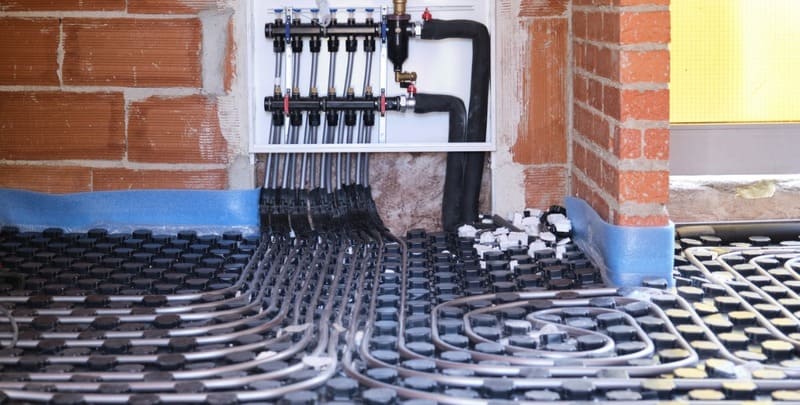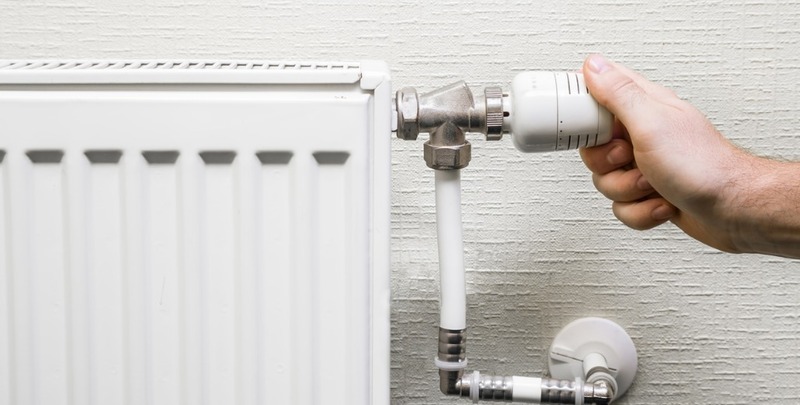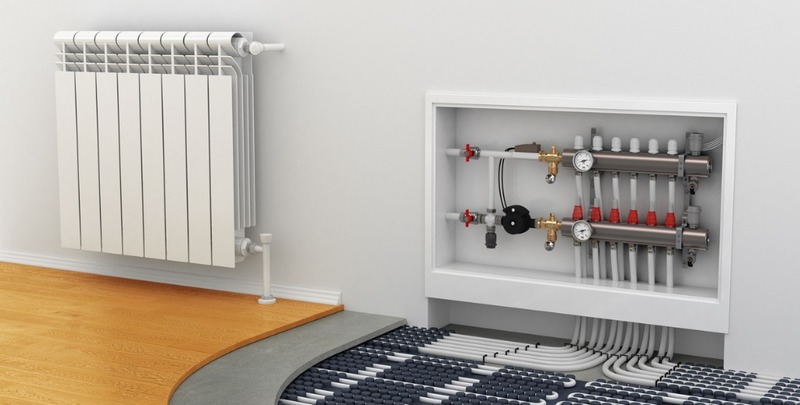
The Many Benefits of Hydronic Heating
Hydronic heating is gaining momentum in Australia, yet it remains relatively unknown to the majority of the population. If you’re wondering what hydronic heating is, how it works and what its many benefits are, keep reading.
Hydronic heating is a system that uses hot water or steam to provide warmth to a space, and it has many advantages over traditional heating systems.
From energy efficiency and comfort to health and environmental benefits, hydronic heating offers a range of advantages that make it an attractive option for residential and commercial properties alike.
In this article, we will explore the many benefits of hydronic heating in detail and why it might be the right choice for your space.
How Old is Hydronic Heating?
Hydronic heating has been in use for centuries, with ancient Romans using a similar system known as hypocausts to heat their public baths and homes.
However, the modern hydronic heating system we know today has its roots in the 19th century. In the early 1800s, hot water and steam heating systems began to be used in large buildings like hospitals and factories.
By the late 1800s, these hydronic systems had been adapted for residential use, and hot water radiators became a popular way to heat homes. In the 20th century, advances in technology and materials led to the development of underfloor heating systems and other innovations.
Today, this type of hydronic system is widely used in homes and buildings around the world and continues to evolve with new technologies and sustainable practices.
How Does Hydronic Heating Work?
Hydronic heating works by circulating hot water or steam through a network of pipes and radiators or underfloor pipes. A boiler heats the water or creates the steam, which is then distributed through the pipes to provide warmth to the space. This is known as radiant heating.
In a radiator system, the hot water or steam flows through the radiator, heating the metal and radiating warm air into the room.
In an underfloor system, the hot water or steam circulates through pipes installed under the floor, heating the space from the ground up. This kind of system can be controlled by a thermostat, allowing for precise temperature control and energy efficiency.

How Does It Compare to Other Systems?
When compared to other heating systems, hydronic heating offers several advantages, including:
- Energy efficiency – They are generally more energy-efficient than traditional forced-air heating systems. This is because hot water or steam can hold more heat energy than air, allowing for more efficient transfer of heat to the space being heated.
- Even heat – Hydronic heating systems provide more consistent and even heat distribution than forced-air heating systems. This is because hot water or steam radiates warm air evenly throughout the space, whereas forced-air systems can create hot and cold spots depending on where the vents are located.
- Less noise – They are much quieter than forced-air systems. Forced-air systems can create noise from the movement of air through the ducts, whereas hydronic systems are almost silent.
- Better air quality – This kind of system offers improved indoor air quality by reducing the circulation of allergens and dust compared to forced-air systems, which can blow particles around the space.
What are the Comfort Benefits?
Hydronic heating systems provide consistent and even heat distribution due to the use of hot water or steam to radiate heat throughout a space.
Unlike a forced-air heating system, which can create hot and cold spots depending on the location of vents, it can distribute heat evenly, resulting in a more comfortable living or working environment.
This even heat distribution can be especially beneficial in larger spaces or multi-storey buildings, where it can be challenging to maintain consistent temperatures throughout the space with a forced-air system. Then there are the little luxuries like heated towel rails.
Another advantage is the lack of noise – these systems barely make a sound, adding to your comfort level.
Does It Have Any Health Benefits?
Hydronic heating systems can provide several health benefits compared to traditional forced-air heating systems.
Forced-air systems can circulate allergens, dust, and other particles through the air, which can exacerbate allergies, asthma and other respiratory conditions. In contrast, these systems don’t use air to distribute heat. Hydronic heaters use natural radiant heat. This can lead to improved indoor air quality and reduced circulation of airborne particles.
Furthermore, they do not create air currents, which can stir up dust and cause discomfort for people with allergies or respiratory issues.
Additionally, because it uses radiant heat, it doesn’t dry out the air like forced-air systems can. This can help to reduce issues like dry skin and respiratory irritation.

Is Hydronic Heating Eco-Friendly?
Hydronic heating systems can provide several environmental benefits compared to traditional forced-air heating systems. Firstly, this kind of system can be powered by renewable energy sources like solar or geothermal power, which can reduce reliance on non-renewable sources of energy like oil or natural gas.
Secondly, it is more energy-efficient than a forced-air system, which can reduce greenhouse gas emissions and help to mitigate climate change. This increased energy efficiency is due to the use of hot water or steam to transfer heat, which is more efficient than using air.
Finally, it can be designed to use less water than traditional forced-air systems. This helps to conserve water resources and reduce overall water usage.
What are the Cost Benefits?
These systems can provide several cost benefits compared to traditional forced-air heating systems.
For a start, hydronic systems are more energy-efficient than forced-air systems, which can lead to lower energy bills over time. This increased efficiency is due to the use of hot water or steam to transfer heat, which is more efficient than using air.
Because they can be zoned, allowing for precise temperature control in different areas of a space, these systems can help to reduce energy waste in unused areas. This targeted heating using panel radiators can result in further energy savings and lower heating costs.
These heating systems also require less maintenance than forced-air systems, which means there will likely be lower long-term costs for homeowners. With fewer moving parts and less wear and tear on the system, hydronic heating systems can be more reliable and require less frequent repairs.
What are the Negatives?
While hydronic heating offers numerous advantages, it’s essential to consider the potential drawbacks before deciding if it’s the right heating system for you.
- Initial cost: One of the main drawbacks of hydronic heating is the upfront cost. Installing a hydronic heating system can be more expensive than traditional forced-air systems. You’ll need to invest in a boiler, pipes, and radiators or in-floor heating, which can add up quickly.
- Installation complexity: The hydronic heating installation process is more complex than simply hooking up a furnace or heat pump. It requires careful planning and can be disruptive to your home during installation (particularly an underfloor heating system).
- Maintenance: While hydronic systems are generally low maintenance, they do require periodic maintenance, such as boiler inspections and pipe checks, which can add to the long-term cost.
- Space requirements: Hydronic systems may take up more space than other heating systems, especially if you opt for radiators. This can be a drawback if you have limited space in your home.
- Incompatibility with cooling: Hydronic systems are primarily designed for heating and may not provide cooling capabilities. You may need a separate cooling system if you want to keep your home comfortable year-round.
While hydronic heaters offer excellent energy efficiency and comfort, it’s essential to weigh these potential drawbacks against the benefits to determine if it’s the right choice for your home. To install hydronic heating is a big commitment but, when it comes to central heating systems, it’s one of the best.
Energy-Efficient Warmth
These heating systems offer numerous benefits over traditional forced-air systems, including increased energy efficiency, improved indoor air quality, targeted heating control, reduced environmental impact, and more flexible design options.
In addition, these heating systems can offer cost savings over the long term, as they require less maintenance and can lead to lower energy bills.
Overall, hydronic heating can provide a more comfortable, efficient, and environmentally friendly way to heat homes, buildings, and other spaces.
For more details contact the hydronic heating specialists at Metropolitan Air Conditioning. We’re available 24/7, every day of the year.
Please note: This information is provided for advice purposes only. Regulations differ from state to state, so please consult your local authorities or an industry professional before proceeding with any work. See our Terms & Conditions here
Published: 2023-05-25

































